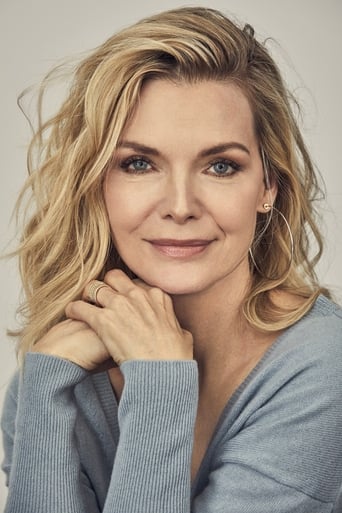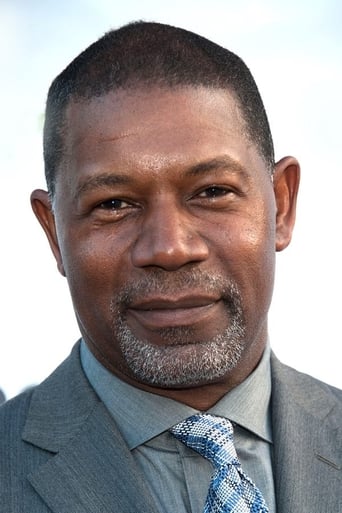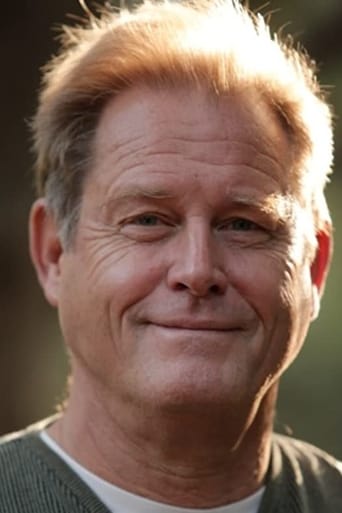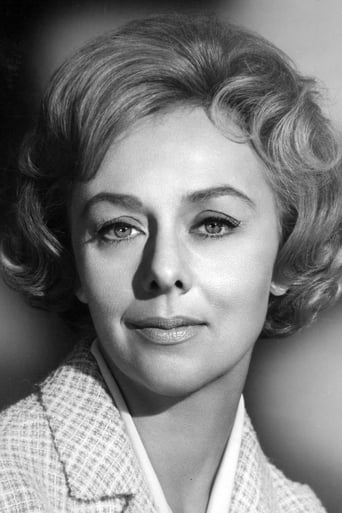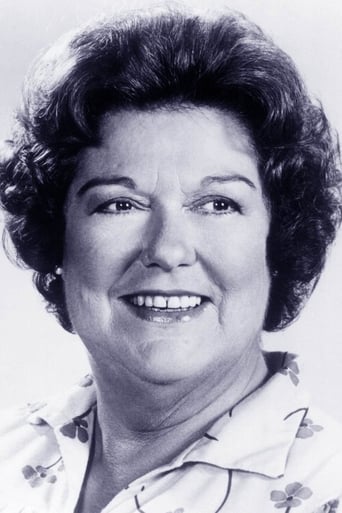Lovesusti
The Worst Film Ever
Dynamixor
The performances transcend the film's tropes, grounding it in characters that feel more complete than this subgenre often produces.
AutCuddly
Great movie! If you want to be entertained and have a few good laughs, see this movie. The music is also very good,
Portia Hilton
Blistering performances.
James Hitchcock
Love Field is an airport near Dallas, named after the pioneer aviator Moss Love. Its relevance to this film is that it was the airport into which President John F. Kennedy flew for the visit which was to end in his assassination. (This has not, however, prevented some people from giving the title a more literal interpretation; the German title, for instance, was "Feld der Liebe", or "Field of Love").The film is set in November 1963, around the time of the assassination. The main character is Lurene Hallett, a thirty-something Dallas beautician obsessed with the President and even more with his wife Jacqueline. (Jackiemania of this sort appears to have been a genuine phenomenon of the early sixties; it was satirised by the British humorist Michael Wharton ("Peter Simple") who wrote of "typical housewives' fan clubs" with names like the "Revisionist Anti-Our Jackie Onassis"). When she learns that the President has been assassinated she is determined to travel by bus to Washington to attend his funeral, without either the knowledge or approval of her husband Ray.During her journey, Lurene meets Paul Cater, a black fellow-passenger, travelling with a young girl named Jonell, who he claims is his daughter. She senses that something is wrong, jumps to the conclusion that Paul has kidnapped the child and raises the alarm. When she realises the truth- that Paul is indeed Jonell's father and that he has rescued her from an orphanage where she was being mistreated after the death of her unmarried mother- Lurene feels that she needs to make amends for her well-intentioned but ill-judged interference, and helps Paul to make a getaway. The two find themselves on a perilous road trip across several Southern states with the police in pursuit.This was the film which won Michelle Pfeiffer her third Academy Award nomination in four years (the others were for "Dangerous Liaisons" and "The Fabulous Baker Boys"), thus completing her successful transition from sex symbol to serious actress. Her Lurene at first seems a slightly ridiculous figure, and not merely because she has the sort of Christian name generally used by Hollywood scriptwriters as shorthand for "dumb blonde trailer trash". Her thick Texas drawl, her overdone makeup and her platinum blonde bouffant hairdo, the sort of big hair that screams "early sixties!" at you, all initially make it difficult to take her seriously. (Even by the end of the decade, this hairstyle had been forbidden by law on pain of extreme ridicule). Her obsession with the President and First Lady seems naïve and childish, an adult version of a teenage crush. Yet as the film progresses, we realise that she is not just a dumb blonde, but someone who has hidden reserves of kindness and decency, especially as she is no middle-class liberal, but comes from the class which, in the South, has always constituted the main reserve of racist bigotry.Films about racial prejudice are today commonplace, and even in the early nineties were not as daring or original as they would have been a few decades earlier. What was original about "Love Field" is the way in which it treats this theme. Lurene's deepening relationship with Paul is always going to cause both of them problems, given that they are travelling through rural areas where even a platonic friendship between a black man and a white woman will always be regarded with suspicion and anything deeper than that with outright hostility. When the couple realise that they are falling in love, they also realise that they have violated a fundamental taboo of their society. Indeed, this was a courageous theme even for 1992. Even ten years later when Dennis Haysbert, who plays Paul here, was to star in "Far from Heaven", another film with a similar theme, it was made clear that his character's relationship with Julianne Moore always remained non-sexual.Like "Frankie and Johnnie" in which Pfeiffer had starred the previous year, "Love Field" is essentially a romantic comedy, but one which contains a greater degree of psychological depth and insight than is usual in films of this type, at least in its portrayal of Lurene. Haysbert's Paul is perhaps the sort of standard stoical, dignified black man common in films with a race relations theme, but it is Michelle Pfeiffer's performance which keeps us watching. I should also mention Jerry Goldsmith's excellent piano score which enhances the appeal of this film. 7/10
ThrownMuse
Michelle Pfeiffer plays a middle-class 60s housewife who idolizes Jackie O. When JFK is assassinated, she leaves her husband and road trips to his funeral to show solidarity with her icon. Along the way she meets a black man (Dennis Haysbert) and his young daughter. She immediately befriends them but realizes they are hiding a secret. Soon she is swept up in their lives and finds herself on the run from the FBI.This is the best performance I've ever seen by Pfeiffer. She is practically unrecognizable--her southern accent is perfect and her Jackie O-inspired look is classic. She adds a welcome dose of humor to a film that is often emotionally overwhelming. The movie alternates between adorable and disturbing, but never gets too extreme either way. The plot gets a bit contrived at times, but the movie serves to question the comfort of routine middle-class existence, so it works. I am surprised this is not a well-known film. It is one of the best ones I've seen from the early 90s.My Rating: 8/10.
jotix100
"Love Field" was a film that came and went without much fanfare. It was shown on cable recently, so we decided to take a chance with it. Jonathan Kaplan makes an impression with his unusual take on the subject of the race relations in the United States of the early 60s that pays a great deal of respect to the era in which it takes place. The film shows how things were in this country in the years where segregation was still enforced in the land.If you haven't watched the movie, please stop reading now.Lurene, the young woman at the center of the story was in awe of Mrs. Jacqueline Kennedy. The former first lady had such magnetic quality and charisma that it was easy to see why she was so admired and imitated by all women in America in the early 60s. After all, Mrs. Kennedy was royalty in a country that supposedly has no class differences. Jackie's sense of style was imitated by most women; after all, she was an elegant, vibrant and youthful woman who all wanted to adore.The story presents a situation that rings false from the beginning. Lurene was only a step above of what would be considered white trash, therefore, her relationship with Paul Cater and Jonell, is hard to believe because of the woman's background. Lurene is kind hearted, but one wonders to what extend would someone in her station in life would have done in a real situation like the director presents in the picture.As far as what we watch in the film, making allowances for Lurene's open mind and understanding about segregation and discrimination, the movie is easy to watch. In pairing Michelle Pfeiffer with a handsome Dennis Haysbert, who has already been seen in a similar role in "Far from Heaven", one can see why these two lost souls were attracted to one another. We can understand Lurene's sense of decency, as well as Paul's falling for Lurene when reason and logic would tell him to stay away from this white woman. Even in the big Northern cities where racial discrimination was not as blatant as in the deep South, integrated couples were a rarity in the early 60s.Michelle Pfeiffer makes a compelling Lurene, the girl who is a decent human being. This role is a stretch for Ms. Pfeiffer, an actress not associated with dramatic parts that make such demands on her. Dennis Haysbert is good as the troubled Paul, a man that only wants to do his best for this daughter he is bringing back to Philadelphia. Stephanie McFadden is sweet as the young girl who can't comprehend what's going on around her. Finally, Louise Latham, as Mrs. Enright, is the only one that shows any decency to the situation in which she gets involved against her will.While the movie doesn't break any grounds in racial relations, at least it has the courage to show how wrong segregation was and how prevalent it was in the United States.
Sunshine-8
I love this movie. Michelle is so great in it. I wish they could have elaborated more on the relationship between Lurene and Mr. Cater near the end of the movie. It kinda leaves you hanging. Otherwise, it was a great movie.


